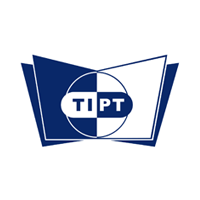
Accuracy and attention to detail in the pharmaceutical industry is beneficial not only for employees and organizations, but for the general public who are receiving medications after they have been released to the marketplace.
During the development process, professionals working in regulatory affairs are required to exercise a great deal of precision and accuracy in order to ensure that pharmaceutical products can be approved for sale, as well as their safety for public consumption.
If you are interested in regulatory affairs, here are a few ways to develop a stronger aptitude for detail before beginning your career.
Reviewing Your Work is Crucial for Ensuring Effective Results
Once tasks and responsibilities have been completed, it is beneficial for professionals to revise their work in order to scan for any unseen errors. In regulatory affairs, this can involve gathering information for documentation that pertains to research and development, product labelling, storage, or packaging, and it is important for professionals to double-check that the right information is correctly associated to its designated product. During revision, professionals can verify if all details are accurate and correct any inconsistencies they notice at second glance.

Another type of revision that students should consider is inviting other students or colleagues to examine their work as well. This can provide an extra perspective that they can learn from and can reduce the number of errors made in the future.
Students Pursuing Pharmaceutical Careers Should Take Their Time With Tasks
Before students can begin their pharmaceutical careers, they learn about the development of drugs and other medications and the processes associated with their manufacture. In regulatory affairs, where much of the work involves compiling and filing documentation for licensing purposes, students must be meticulous in order to ensure that all of these processes have been detailed accurately, and that the proper paperwork has been filed correctly.

An effective method for achieving this is for students to take their time during tasks and create a checklist that outlines their priorities. By carefully planning and categorizing everything they have to take into account, students will be able to cover all necessary components without overlooking crucial information that may hinder the process.
Concentration is an Integral Part of Developing Good Attention to Detail
Both during their careers and while they complete regulatory affairs training, students may have to deal with internal and external factors that can affect their concentration. To a certain extent, they can take control over internal factors such as proper eating and sleeping patterns to increase their productivity. Fatigue and hunger can lead to misjudgement and lapses in concentration, and hurt their chances of producing accurate work.
Personal situations or problems outside the workplace can also affect an individual’s ability to achieve the level of accuracy required, as their mind can be focused elsewhere. In these situations, it is important for students and pharmaceutical professionals to be able to shift their thoughts to the task at hand and concentrate on how to effectively manage their responsibilities.
Often, the best solution can be to just take a break. Stepping back for a moment, doing some breathing exercises, or even going for a short walk can be enough to clear your head and allow you to refocus your energy on your work.
Are you interested in pursuing a regulatory affairs diploma?
Contact TIPT for more information about our programs.
